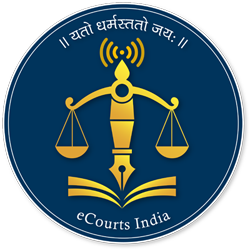ICJS
The use of information technology in the judicial domain started with the preparation of ‘National Policy and Action Plan for Implementation of ICT in the Indian Judiciary’ by the e-Committee of Supreme Court of India.
The Inter-operable Criminal Justice System (ICJS) is an initiative of the e-Committee to enable seamless transfer of data and information among different pillars of the criminal justice system, like courts, police, jails and forensic science laboratories, from one platform.
With the aid of the ICJS platform, the metadata of FIR and charge sheet can be accessed by all the High Courts and subordinate courts. Documents like FIR, case diary and charge sheet are uploaded by police in PDF format for utilization by the courts. The e-Committee is also actively working on, inter alia, the issues of standardization of data and metadata for information exchange, to lay down processes for data validation, acknowledgement, user identification/access, creation of technical infrastructure for storage and preservation of electronic records.
To ensure effective implementation of ICJS in each State, High Courts have been requested to engage the services of an IPS officer, who will be instrumental for the integration of data on the ICJS platform. High Courts are also requested to appoint one Nodal Officer to ensure that apart from the police, other State functionaries like Provident Fund Organisation, Forest Department, Municipal Authorities, Labour Welfare Boards Town Planning Authorities and Food and Drug Administration are also part of ICJS.
The ICJS platform is an effective tool for the case and court management, as all the relevant information of a case will be available in real-time for use by the courts. Compliance of judicial orders and summons can also be achieved expeditiously, ensuring effective time management. The ICJS is going to be a milestone to enhance the productivity of the criminal justice system both qualitatively and quantitatively.




